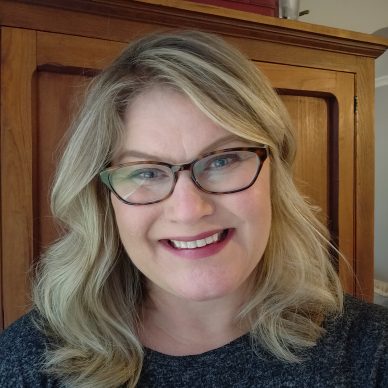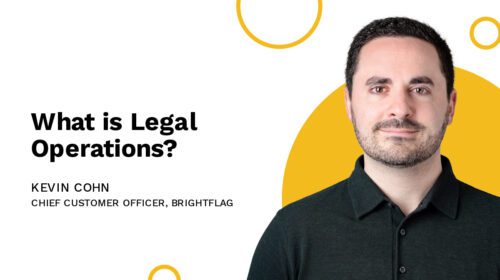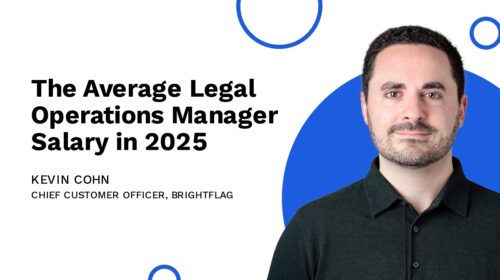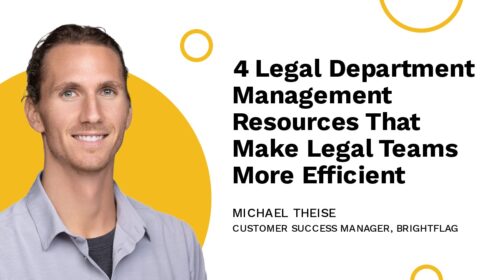On Patience & Partnership in Legal Operations: An Interview with Sheila Dusseau, Head of Global Legal Operations at Ferring Pharmaceuticals
Sheila Dusseau, Head of Global Legal Operations at Ferring, joined Brightflag for an insightful conversation about her professional journey, the importance of data-backed decision-making, and how to prioritize tasks when working to build out more efficient processes.
The first big change that stands out is your business address. After building a career in Atlanta, what brought you all the way to Switzerland?
I actually deleted the first email I received about the position here at Ferring. I wasn’t looking to leave my last role and I figured there was no way my family would want to move halfway around the world. But I’d worked for several international companies before, and Switzerland was at the top of a very short list of countries I’d consider relocating to.
As the conversation continued, I decided to just go along for the ride and see what happened. Every time I came up with a “con” in my head an unexpected “pro” would emerge and make me reconsider. So by the time the eventual offer came, my family and I had this sense that there was something about this job that was just meant to be.
As the first person formally in charge of legal operations at Ferring, your new colleagues probably had a long wishlist waiting for you. How did you prioritize your early efforts?
The recruiter first coaxed me into an interview by explaining that the GC wanted to have a conversation about some of the initiatives he was considering. I still figured this whole thing was a longshot, but I was happy to hear about the experiences of another company and potentially share learnings. I quickly realized that he was very open to suggested improvements and very interested in addressing the needs of multiple departments.
When I finally came on-site for an interview I ended up meeting with a total of 10 Ferring employees that day. So at that point, I already had a well-rounded picture of where the business was and what I could bring to the table. My Day One priority, though, became getting our arms around our global legal spend. We needed to improve visibility now, but I also wanted a long-term plan.
I’d implemented three different billing and matter management systems in my previous roles, so I had a pretty good sense of the issues that could trip us down the road. Teams will inevitably realize the tech has more horsepower than they thought, and they’ll want to use it. But how you set things up at the start dictates how (or if) you capitalize on all that potential.
I also wanted to apply that same thinking to new contract management software and start reassessing our outsourcing relationships as a whole. I’m finding that each of those three big initiatives shares the same key challenge, though. We need to find solutions that suit our needs now without limiting our ability to grow into who we eventually want to be.
Have there been any eye-opening moments for the team since you started?
I’ve only been working on location for a few months, but I’d like to think progress has been steady. We’re nearly there from a cost visibility perspective. We know our biggest pieces and players — now it’s about uncovering the legal spend that’s been hiding in other departments. Once we have complete accountability, I see that having huge implications for the team.
I’ve had several of my own “aha” moments, though, when visiting ALSPs and discussing our work in greater detail. There were some basic inefficiencies to resolve, but more than anything I wanted to start a conversation about what true partnership looks like.
Sometimes a purely transactional relationship is all you want. They take a portion of work off your desk and turn it around fast for a reasonable fee. The volume of work inevitably breeds a certain familiarity with your operations, though, and that outsider perspective can be incredibly valuable. Most companies just fail to ask for their feedback.
Interesting. So how have you worked to reframe those relationships?
The best way to change the dynamic is to talk about the power they have to help you improve as a business. Let them know that you see them not as an extra pair of hands, but as a trusted partner who can help you become better. That simple twist can have a huge impact on people and organizations used to playing a subservient role.
We outsource a variety of tasks surrounding contract management, for example. Even for our least complex contracts, we’ve told our provider to come to us with any pain points they see within our workflows. When I pushed for that feedback, I learned that they were occasionally left waiting a week or more for notes and direction from our lawyers. Once the issue was out in the open we were able to modify our internal playbooks and reduce turnaround times in the end.
We’ve taken the dialogue one step further for more complex contracts — we asked our provider to start presenting metrics. What types of contracts are we processing? What’s the average turnaround time? What percentage have been left sitting for more than 60 days? These are trends they can’t help but notice behind the scenes.
Data wasn’t really part of their culture or competencies at the beginning, but it’s something we’ve helped them develop. Instead of scrolling through an endless spreadsheet at the end of each month, we now reference a clean set of dashboards when making business decisions. And when the numbers revealed exactly how much progress we were making as partners, we decided to start sending even more work their way.
Realistically, you may only be able to cultivate this kind of relationship with a few suppliers. But it’s especially gratifying when a partner grows with you and you can each take pride in shaping the other’s success.
In a few weeks, you’ll be a featured speaker at the World Legal Operations Summit. What made humility the right topic for the occasion?
It was actually the last of the six topics I submitted to the event organizers. Secretly it was the one I was most passionate about, but I wasn’t sure it would resonate with anyone else. I was happy to see they saw the potential, though, because I think I can offer a new take on the traditional success story.
I’ve had the good fortune of helping several companies throughout my career achieve important milestones. But I’d be lying if I didn’t admit that most of my highlights were preceded by long periods of falling on my face, dusting myself off, and trying something new. And the reality is, that’s going to be the experience for most legal ops professionals for the foreseeable future.
We’re all still figuring it out as we go and rewriting the rules of the profession along the way. You need to get comfortable with being wrong, with accepting different perspectives, and changing course midstream. Once I understood that I saw how much faster things started moving in the right direction.
That’s a big part of the reason I wanted to join Ferring at this stage of its journey. I knew I could channel all those past frustrations in a way that helped the team steer clear of growing pains. And I’m hoping I can do some of the same for those attending my event session.
Has there been any other advice that’s helped shorten your learning curve in legal ops?
One of my mentors once shared a phrase that’s saved me countless times over the years: Say the second thing that comes to mind. We all have a natural bias to assume that we’re right, that we have enough experience and perspective to know the correct answer. But pausing to let that initial thought pass by can spare you so much frustration.
Oftentimes that means avoiding an emotional response that you’d immediately recognize as wrong. But sometimes it’s more subtle. I’ve been in scenarios, for example, where colleagues were looking to me for an end-all answer or silver-bullet solution. My initial impulse would have been to tell them what they wanted to hear and take their anxieties away. But ultimately the right thing to do was tell the truth of how long our road to improvement might really be.
Looking back now, that mentor relationship accelerated my success in so many ways. She made it difficult for me in the best ways, poking holes in all my proposed ideas to make sure I was pursuing initiatives for the right reasons. Once she saw that integrity and commitment, she supported me 110% and shielded me from critics eager to throw spears at someone challenging the status quo.
She also inspired a passion for the profession that helped carry me through my most discouraging moments. Honestly, I may not have stayed in the legal ops function if I didn’t have the benefit of her guidance at that early stage. So to anyone in a position to play a mentor role, know that the time and attention you share can have a dramatic impact.



